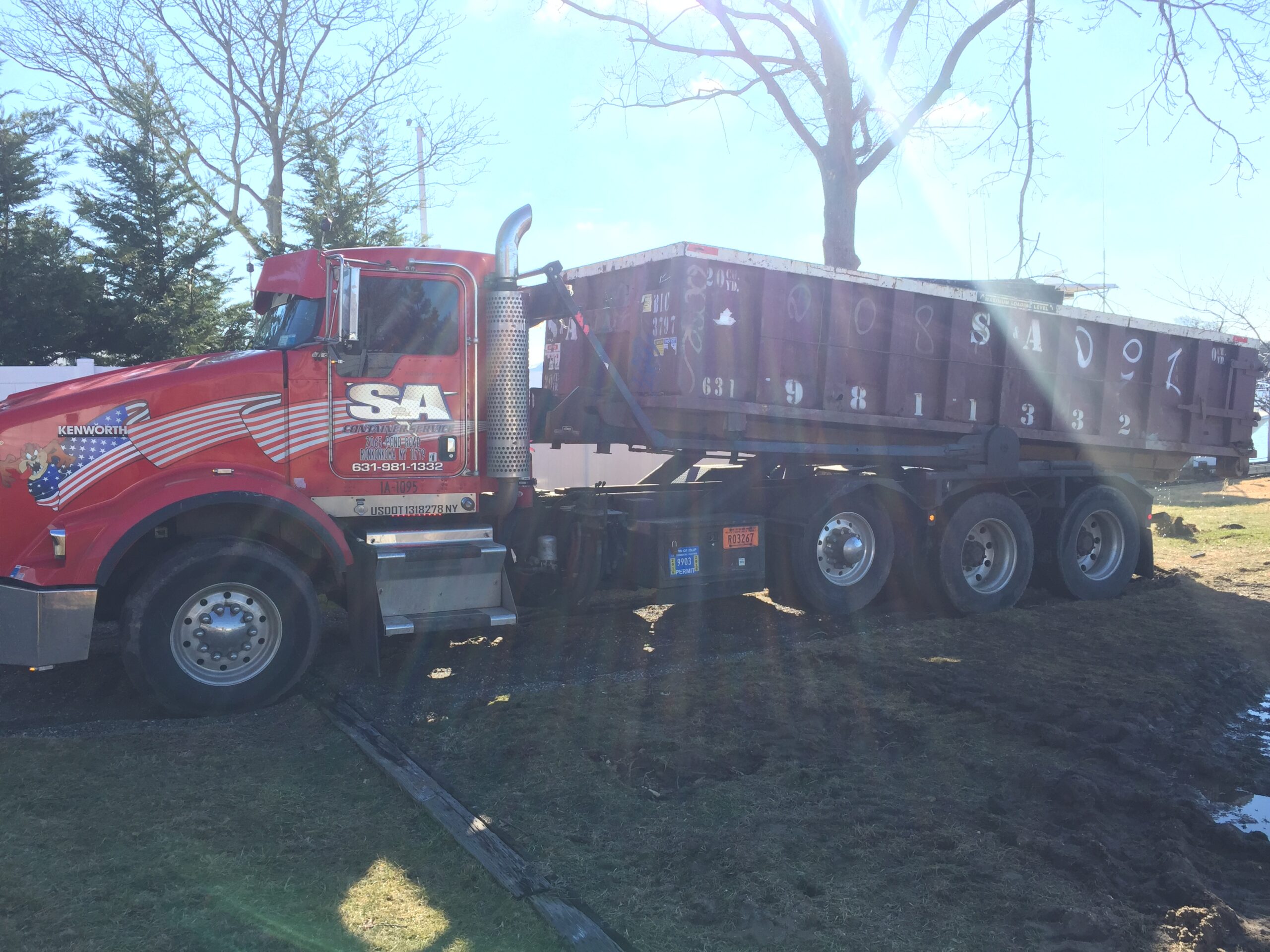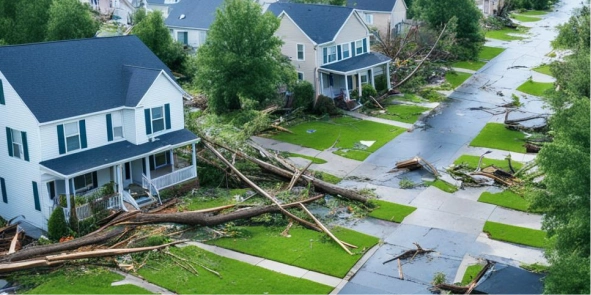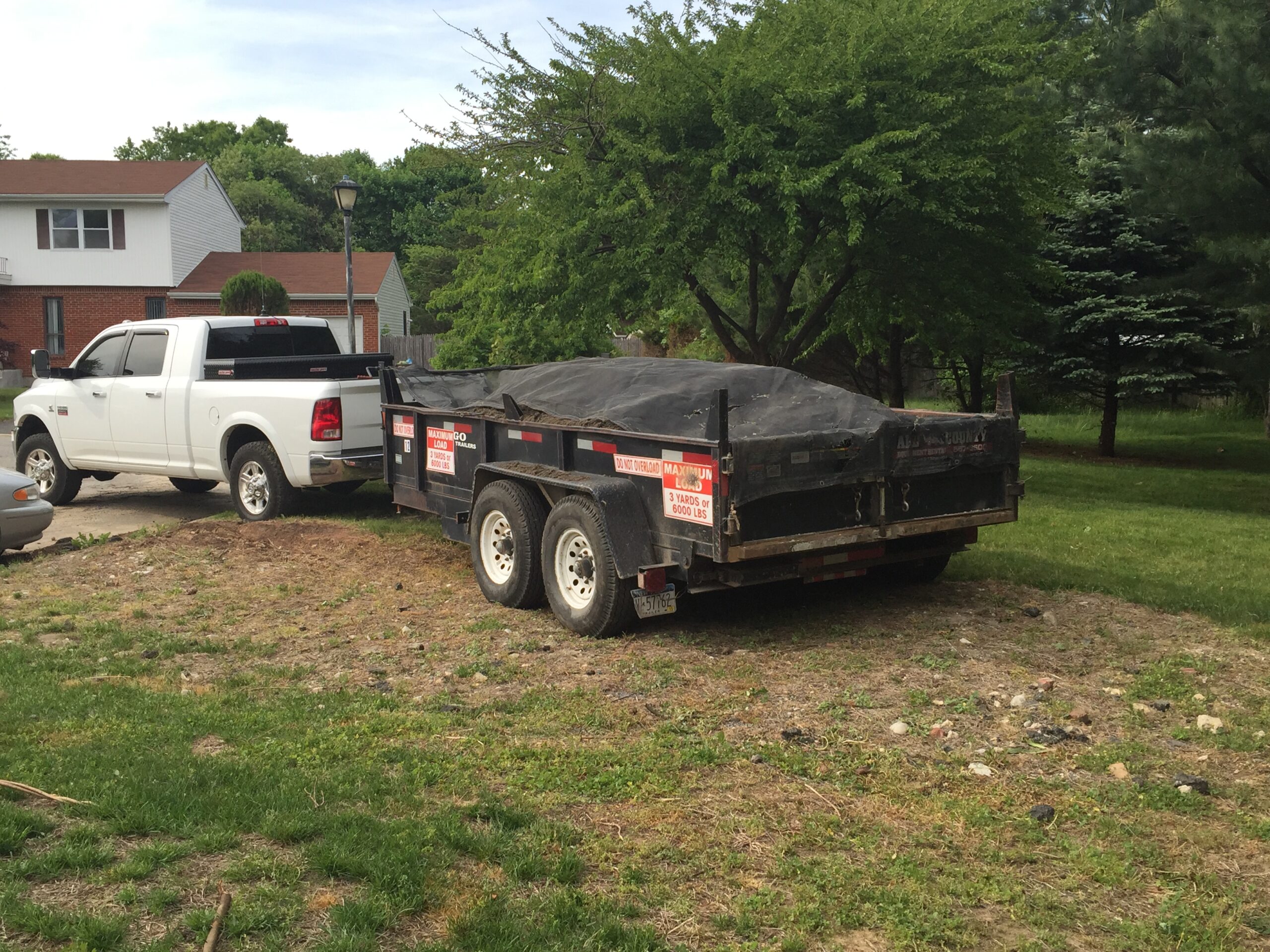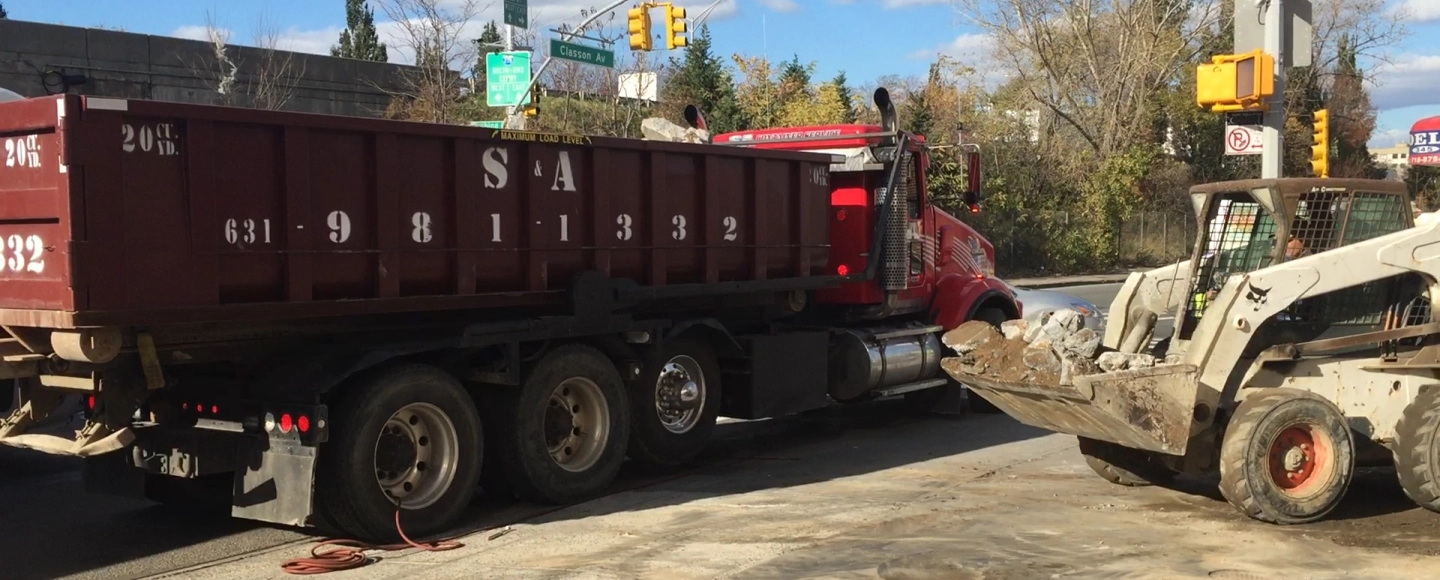Planning a construction project in Long Island? Whether you’re building new, renovating, or tackling a big landscaping job, one thing’s for sure: you’re going to have piles of construction debris—and that means it’s time to think about construction waste disposal.
1. Know What Debris Your Construction Site is Dealing With
Before you start tossing debris into a bin, take a minute to determine the type of waste your project will generate. Different construction jobs generate different types of debris—and that can seriously impact your budget.
For example, lighter materials like wood, drywall, cardboard, and packaging are relatively straightforward. Most dumpster rental companies on Long Island can handle these without any fuss, and they usually fall well within standard weight limits.
But let’s say your project involves gutting a bathroom or kitchen, or demoing an older building—then you might run into some trickier stuff. Consider hazardous waste disposal, such as asbestos from old insulation or tiles, lead paint from older walls, or chemicals like solvents and adhesives. These materials can’t just be tossed in a regular dumpster. They require special disposal processes—sometimes even specific landfills—and this means separate disposal costs and, in some cases, additional permits.
Don’t forget about heavier materials either. Concrete, bricks, roofing shingles, and dirt can add up in weight very quickly. Even a relatively small pile of bricks or broken concrete can exceed your included weight limit and result in overage fees.
Pro tip: Take a walkthrough of your construction site before the demo starts and make a list of the materials you’ll be dealing with. Talk to your contractor or project manager if you’re not sure—chances are, they’ve handled similar jobs before and can give you a heads-up on what to expect. Knowing what you’re dealing with can save you a lot of headaches—and a lot of money—down the line. For example, heavy debris like concrete and dirt should always be kept separate from other construction materials.
These items are usually charged by the yard, not by weight, so mixing them with general debris can drive up disposal costs unnecessarily. Keeping things sorted from the start makes the whole process more efficient and cost-effective.
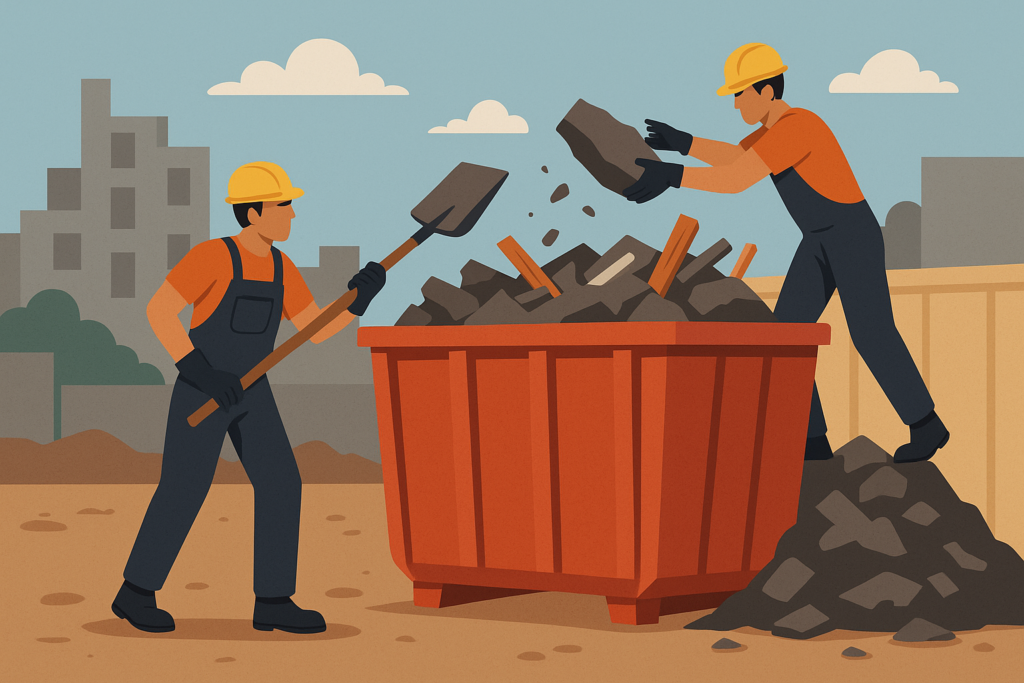
Related posts:
- What Can & Can’t Fit in a Roll-Off Dumpster
- The Most Common Size Dumpster Rentals & Their Accepted Materials
2. Construction Dumpster Rentals: Your Budget’s Best Friend
On Long Island, dumpster rentals are usually the most cost-effective way to handle construction site trash. But here’s the catch—dumpster costs can vary widely depending on the size you need, the rental period, and what you’re tossing. A small 10-yard dumpster might handle a bathroom remodel, but for a full house renovation, you’re probably looking at a 20- or 30-yarder. And don’t forget about disposal costs—some companies bundle them in, while others tack them on as an extra fee.
3. Unexpected Dumpster Rental Fees: Watch Out!
Common culprits include extra charges for overweight loads, extended rental periods, or special disposal fees for certain materials.
For example, tossing shingles, concrete, or dirt might push you over the included weight limit, which means more charges on your final bill. Always ask your hauler for a complete price breakdown so you can budget accurately.
4. Budgeting Tips for Construction Site Clean Up
A little planning goes a long way in keeping costs under control. Here’s how to get ahead of the game:
- Estimate your debris: Figure out what’s going in the dumpster and roughly how much it’ll weigh.
- Choose the right dumpster size: Too small means multiple hauls (read: more fees); too big means you’re paying for empty space.
- Coordinate with contractors: Make sure your crew knows the plan for waste—so everything ends up in the right bin at the right time.
- Check local rules: Some Long Island towns require permits for dumpsters or have special recycling requirements that might affect your plan.
- Set aside a contingency: Leave a little wiggle room in your budget for surprises—because they always pop up.
5. Considerations for Long Island Construction Waste Disposal
Long Island is known not only for the Hamptons and its exceptional pizza but also for its complex array of local regulations that can significantly impact your construction waste disposal plans if you’re unprepared.
For starters, many towns have their own rules about how construction site trash must be handled. In some areas, certain materials like metal, wood, or concrete might need to be separated out for recycling rather than tossed in with the rest of the debris.
Take the Town of Brookhaven, for example. They require specific permits for dumpster placements in certain neighborhoods, and they may enforce strict recycling rules for construction debris. In Smithtown, you may encounter different requirements, such as using town-approved transfer stations for disposal or paying higher tipping fees, which can impact your disposal costs.
And let’s not forget about transfer station fees. Some Long Island towns charge fees based on weight or type of debris, and those can really hit your budget if you’re not expecting them. These fees are often separate from the base price your hauler quotes you, so make sure you get the full picture when comparing dumpster costs.
When in doubt, reach out to your hauler or local town office—they’ve seen every kind of construction job on the island and can steer you in the right direction. That way, you’ll keep your project on track—and your wallet intact.
TL;DR Summary
- Understand your waste: Know what type of debris (and any hazardous materials) you’re dealing with.
- Dumpster rentals matter: Choose the right size and ask about included disposal costs.
- Beware of hidden fees: Watch out for overweight charges, extended rental periods, and disposal surprises.
- Plan your budget: Estimate your debris, coordinate with contractors, and leave room for unexpected costs.
- Check Long Island rules: Local regulations and fees can impact your construction waste disposal budget.
